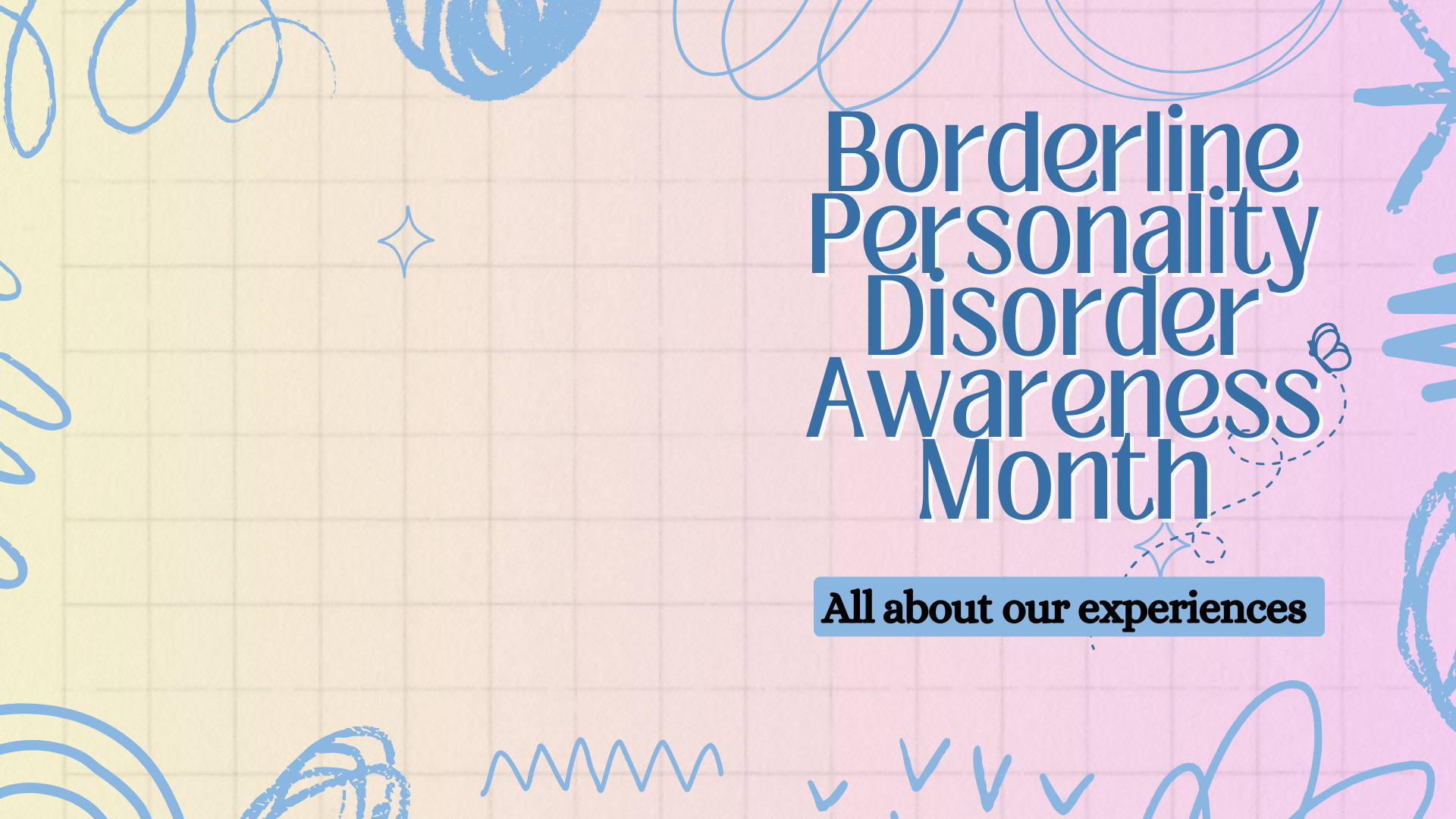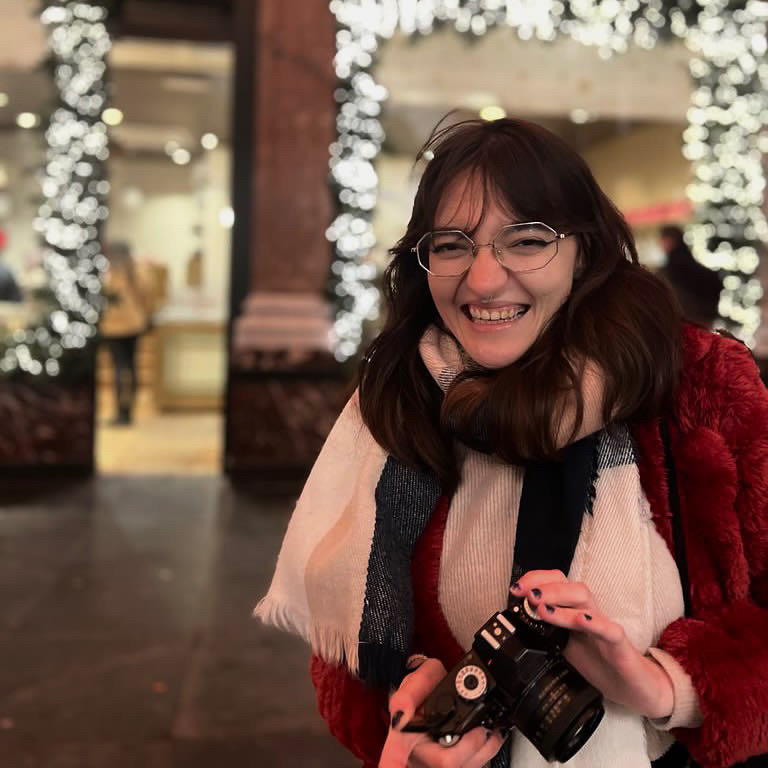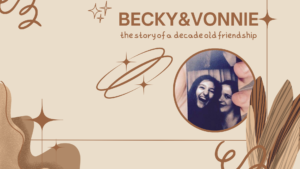May is Borderline Personality Disorder Awareness Month. To us, what that means is spreading awareness on a mental illness that often goes unnoticed and can often be misrepresented. Grab yourself a snack or a cup of tea as we’re going to share our personal experiences of living with Borderline Personality Disorder.
Trigger Warning: Discussion of mental health, Borderline Personality Disorder, and suicidal thoughts
Vonnie’s side

I’m Vonnie. I’m a writer, photographer, and artist in all senses of the word. That is how I describe myself, and that’s what I pride myself in. I am also someone who struggles with Borderline Personality Disorder, some days more than others. Although the month of May is Mental Health Awareness Month, there is a focus on BPD awareness, as it remains still a stigmatised disorder. There stigma, as well as the harmful stereotypes, make an illness that is already difficult become even more unmanageable. At least, that was my case.
Life before diagnosis
I was a petulant child. Having a controlling mother and an emotionally absent father, I didn’t understand how to form healthy attachments with the people who were supposed to teach me. My father didn’t talk much about his life, and while I found refuge in his presence as a child, when he left for another country, there was deep feeling of betrayal and not understanding his decision. I felt abandonment as early as the age of ten, with the person I considered my hero leaving me with the parent I dreaded.
My mother and I’s relationship has always been tumultuous, due to both of us being stubborn and clashing with each other. Although there was a lot of love present, there was violence too. We would get into massive fights, and my mom deemed me impossible to deal with. I felt caged, and I felt angry that the person who was supposed to protect me was against me. In the year and a half when my dad was abroad, I felt completely alone.
When he announced to us that it was time to immigrate to Belgium with him, I had mixed feelings. I was elated that I was going to find my dad again, but I was leaving behind my whole life. My friends, my belongings, my extended family… I didn’t want to go. I wanted my dad to come back and solve what was happening in our home. He never gave me the option though.
In Belgium, I found myself isolating from everyone. I had severe anxiety and depression at the age of thirteen, a diagnosis that would be offered to me eight years later because “I was too young to be diagnosed before”. This explanation would be used against me for many years. I felt so misunderstood, and I had no one to talk to about what I was feeling, because my dad was not the person I knew. He had changed; he was exhausted all the time, and no longer interested in what I became. It was hurting me deeply to go from being so close to being strangers living in the same house.
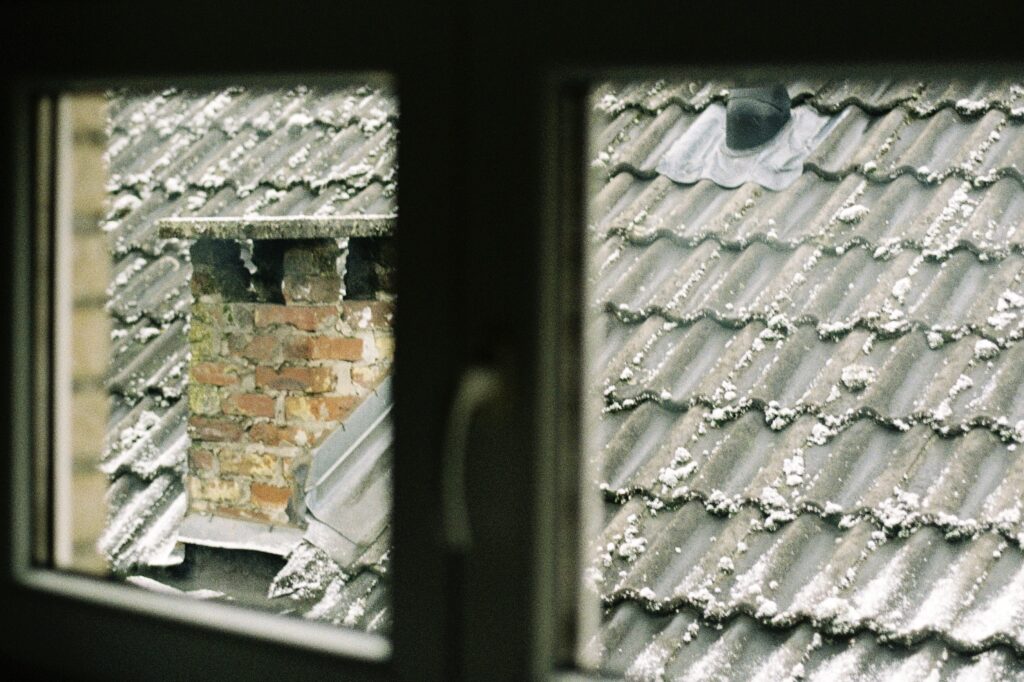
During the entirety of my teenage years, I kept throwing tantrums. I was mad at everything and everyone. I was alone and crying almost everyday, I didn’t understand why my emotions were so intense. When I was happy, I was elated. When I was sad, I was contemplating hurting myself in more ways than I could confess to even my therapist at the time.
By the time I turned eighteen, I still wasn’t diagnosed with anxiety and depression, despite having almost all the symptoms. I moved to Brussels two years later, and I was doing worse than I had ever been. Having gone through a lot of relationship trauma, as well as the arrival of the pandemic, I felt like I was losing my mind. I was burning out, but I didn’t it know it then.
It was only in September 2021 that I realised I was not doing well at all. I was snapping at everyone around me, from my fellow university students, to my roommates and close friends. I would have fights with my friends that I would ignore, coming back as if nothing happened because I felt so shameful about my behaviour that I couldn’t even speak about it. Then, in the ending months of 2021, almost everyone I cared about left my life at the same time. I was shattered.
I engaged in harmful behaviours that were only in my head until then, I stopped trusting people, and my self-esteem crumbled. It felt like didn’t know who I was anymore, and I felt as if I was going through life as a ghost. I could see people around me, but I couldn’t interact with them out of fear. It’s like was the villain in everyone’s life, including mine, and as long as I stayed away from them, I would be stable.
It was then that I started to question whether I should seek a diagnosis, knowing many of my friends who were diagnosed with BPD and were going through similar experiences. I had done my research, and I was ready to bring it up to my mental health professionals, hoping it would make sense of what I was living.
Getting diagnosed
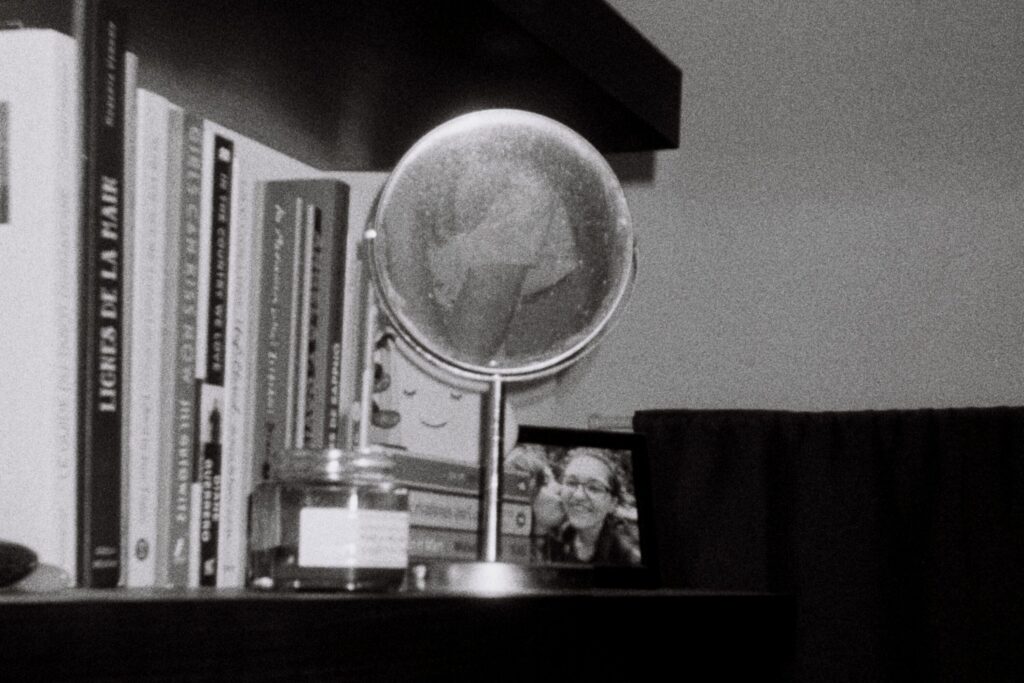
Once I told my psychiatrist about it, he redirected me towards the hospital where he worked at where I would get a full assessment. “Just in case it’s another issue we’re dealing with”. I didn’t want to go through extensive testing, but if it was what I had to do in order to get a diagnosis, I would do it. It took half a year for them to schedule me an appointment, time in which I was feeling dead inside. I was numb ninety percent of the time, and when I wasn’t, I would cry my eyes out. Sometimes, a mix of the two.
After having my assessment day in May, they contacted me to say they would like to do more tests because they had some doubts about another potential mental illness. A month later, I bitterly returned to the hospital. I was feeling like a research case for people who didn’t truly care about me or what I was going through. The therapist that evaluated me told me we would schedule the results appointment for a month later. I knew there was nothing I could change now, but I was still fearful and hopeful for the day I would get answers on why I am the way that I am.
In the heat of July, I went back to the hospital I began to dread, sitting on a chair in front of the therapist who first announced to me that I had moderate anxiety. I wanted to roll my eyes because I had been aware I had that since a decade ago, but didn’t react besides a nod. He wondered why I wasn’t on medication for my anxiety, and I just shook my head. I was growing impatient until he said…
“There’s a possibility you might have Borderline Personality Disorder, but since you’re 22, we can’t be sure. Your brain is still developing and only when you turn 25 we can come back and see if you feel the same.”
I felt anger rise in my chest but stayed calm. I asked him what I was supposed to do until then, but he seemed to want to be focused on my other issues, issues I had been acquainted with for years. So, I asked him to develop more on what he meant about BPD. He told me I had “Borderline traits”, but that again, I shouldn’t take it as a definitive. He then proceeded to tell me there were signs of me being high-potential, and he wanted to schedule me for an IQ test. I told him I’d contact him, then I left the hospital and didn’t look back.
I couldn’t have felt more invalidated. Did I make it all up in my head? Not having a concrete diagnosis made me so angry I stopped seeing my psychiatrist, and refused to go into therapy. I knew how to handle my anxiety, and I didn’t want to keep opening up about all the ways in which I suffered, only for it to be classified as anxiety.
When I received the written report on the assessment, I noticed I was diagnosed with dysphoria too. Dysphoria is a general state of dissatisfaction or unhappiness with life; I very much identified with the description, but it was still not enough to make me stop questioning.
Two years later, I was going through some bad anxiety episodes. I decided to contact a therapist again, one who was specialised in personality disorders. There wasn’t many expectations, but I hoped she might be able to help me with the symptoms I was still experiencing on top of the anxiety that prevented me from leaving my house and having panic attacks. I printed out my symptoms, I told her about all my research, and I even brought a book explaining Borderline Personality Disorder. That is whereI saw the word “dysphoria” again. I looked at the footnote who defined the word as a constant state of changing between moods, a fast changing. It was a symptom of BPD, and I had not known until then. I wanted to bitterly laugh at the realisation, but what hurt me most was how we circled around the diagnosis without saying it.
When I explained why getting a diagnosis was important to me (feeling validated, allowing myself to get help, understanding my mind better, finding community) to my therapist, she told me, “It makes you feel crazy not to get this confirmation, doesn’t it?”. In one question, she managed to sum up all that I was thinking. Yes, I did feel crazy. In my head, I was an impostor who was making up the symptoms for attention, and everyone else could see that except myself.
It only took four sessions with that therapist for her to diagnose me with Borderline Personality Disorder (as well as Obsessive Compulsive Disorder, but that’s another story). I left the office with the dysphoric temperament I was used to, oscillating between being grateful I finally received my validation, and being angry because I was still dissatisfied. It shouldn’t have to take this long to convince someone that what you feel is real, which is a huge flaw in the Belgian mental health system.
Treatments towards recovery

Once I got the confirmation from my therapist, she asked me to order a workbook on BPD. We would do a chapter every two weeks, with Dialectical Behavioural Therapy (DBT) being the main component used in this practice. I also did Cognitive Behavioural Therapy (CBT) at the same time. We planned to do a chapter of the book every two weeks. Recovering from this disorder requires constant work, it is not just reading. I had to apply what I learned to my life and often detach myself from my own point of view to observe the way I was acting and look at my thoughts from an analytical point of view. It’s not easy, and I will not lie and say I stuck to it everyday, but it did help to pinpoint what I was struggling with and find coping mechanisms that fit my experience.
At the same time, I was on antidepressants and anti-anxiety medication for my Generalised Anxiety Disorder and Obsessive Compulsive Disorder. So when it comes to BPD, not much changed in my medical treatment, therapy being the main actor in the process of recovery.
What about now?

Although I’ve gotten better at communicating and setting boundaries to avoid getting triggered, sometimes you can’t help the way you’ll feel. Trying to date as a person with BPD is particularly difficult, as I don’t want to seem too clingy or needy, but I know I need consistence and attention to my person and well-being, as well as clear communication. A lot of people cannot offer that, and I had to accept that there will be times when I get triggered, but what matters most is how I react to the situation. I’ve learned to validate my emotions, take a step back, then communicate.
Communication especially was an aspect I was very scared of, because of my intense fear of abandonment, every tough conversation seemed threatening to the relationship I was trying to keep (whether it was romantic, platonic or familial). Now I’m realising being honest about how I’m feeling makes for better understanding and better relationships. I still have a lot of work to do on my perception of self and the language I use towards myself, but I know recovery takes time, and being validated in my experience is an unequivocal step.
Becky’s side
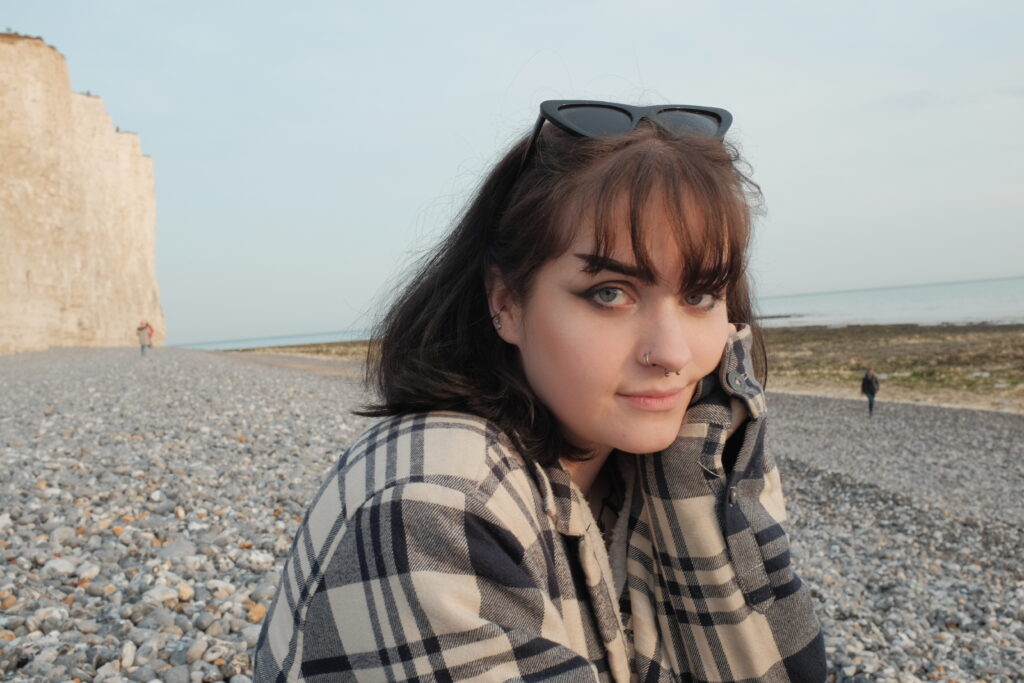
I’m Becky. I’d say I’m an all round creative person who is honestly still struggling to figure out where exactly I fit in the creative world. I grew up moving around Europe, before winding up back in the UK and my life right now is the best its ever been. However, that hasn’t always been the case. Anyone who knows me well knows how open I am about my mental health, but I’m here to share my story in detail for Borderline Personality Disorder Awareness Month.
Life before diagnosis

Honestly, my family would definitely have described me as an emotional child. I was born in Wales and lived there for the first seven years of my life. Then, we spent around 10 years moving between The Netherlands and France before moving back to the UK when I was 16. That first move to The Netherlands is, according to my therapist, is where my mental health issues began to develop.
A lot of people say that BPD is often caused/triggered by traumatic events in your childhood. I’m so lucky to say that I had a fantastic childhood. I mean, growing up and living in so many countries, experiencing new cultures–not everyone gets to experience that. My family are, and always have been, incredible. But still, I ended up where I am today with BPD.
Before getting diagnosed with BPD, I spent a lot of my teenage years in therapy. I was only twelve years old when I was diagnosed with anxiety, which was triggered by that first move abroad. Looking back at my years in high school, it breaks my heart to think of that anxious young girl who would have panic attacks everyday.
I think it was that intense feeling of anxiety and always feeling so insecure. Really, I was so self-aware and felt like shit inside, which spiralled into a deep depression. I can’t even begin to explain the horrific feeling of being depressed at such a young age. To be honest, I was convinced as a teenager that I wouldn’t make it to eighteen. As I grew through my teenage years, the depression turned into something way worse.
I can remember having intense fits of rage, constantly lashing out at my family. I was cutting myself off from friends and becoming incredibly secluded. On the inside, deep down, I desperately wanted to be happy. Why couldn’t I just be happy? It was an overwhelming sense of doom every day and genuinely so exhausting.
It all came to a breaking point when I was at university. I was 19 (almost six years ago, wow!) and my mood swings were insanely out of control. I’d be out with friends having fun, then I’d come home and think about ending my life. The push into seeing doctors really came when one of my friends found me with a knife to my throat. I broke down, called my family, and things quickly swung into action.
I spent that whole year in and out of therapy sessions with my university, and slowly started to feel better…
Getting diagnosed
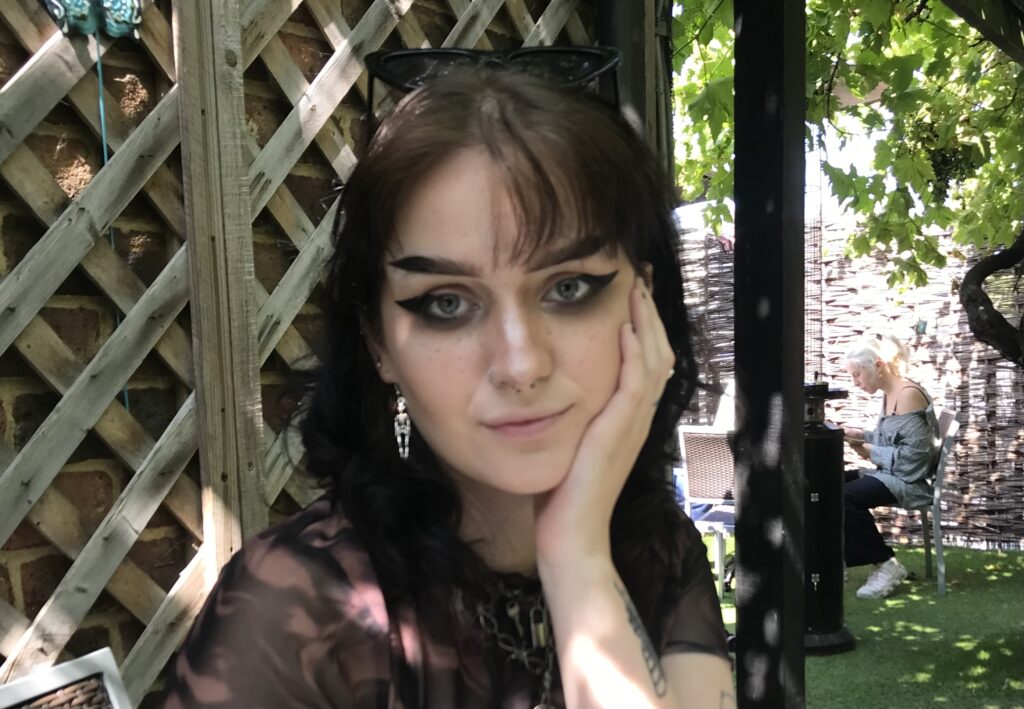
Of course, therapy for depression really helped me. But, deep down, I still felt like this had to be more than depression. It wasn’t until my second year of university where, within a matter of weeks, I was diagnosed with endometriosis and went through a horrific breakup. I’ve very much blocked most of that time out, but I remember my emotions fluctuating incredibly. I felt myself falling back down a deep, deep, hole of depression again.
So, like that, I went back to therapy at my uni. I had a new therapist this time, so I had to tell her my whole life story again. Eventually, she asked me if I had ever heard of Borderline Personality Disorder. I hadn’t. She explained what it was, said she believed I had it. I really felt like she had hit the nail on the head.
I needed an official diagnosis from the NHS, though. Anyone from the UK will know how bad the waitlist is. Luckily because my therapist had proposed the diagnosis, I got seen within weeks. I had a few appointments with the doctor, and they confirmed that I did in fact have Borderline Personality Disorder.
I know there’s a common debate about whether having labels/diagnosis actually helps people, but, for me, it did. There’s no words to explain the huge sense of relief I felt. It was like I was no longer scared of myself. They did say they believe I still had anxiety and depression, but that it was likely in correlation with BPD.
In further therapy sessions, we managed to trace back to what we think may have caused it to come about. We were certain it was to do with how much moving around a did as a child. Of course, many kids do this and end up ‘fine’, but it my brain responded differently to that experience.
Treatments towards recovery
After my diagnosis, I continued to have therapy sessions at university–make the most of it while it’s free, huh? We explored Cognitive Behavioural Therapy, which I surprisingly found really helpful. It taught me how to analyse my emotions. I learned how to predict when a dip, or unhealthy elevation, in mood is coming.
Unfortunately, around 2 years ago, I had one of the biggest dips in my mental health in my whole life. Without getting into the details, I ended up losing a few friends. My brain then convinced me that this had to be the end of my life. Good old BPD, am I right? It was to the point where my family, and my boyfriend, were worried that one day I’d be found dead.
Begrudgingly, I eventually plucked up the courage to call my doctor. After explaining the severity of my situation, I immediately went on anti-depressants. They warned me they may not work, and could even make me worse. But, thank god, they did.
I’m not saying that it will work for everyone, but anti-depressants made a huge impact on my life. Of course, they are just there to managed the depressive side of BPD. So, the euphoric and dangerous elevations of my mood are still hard to manage.
What about now?
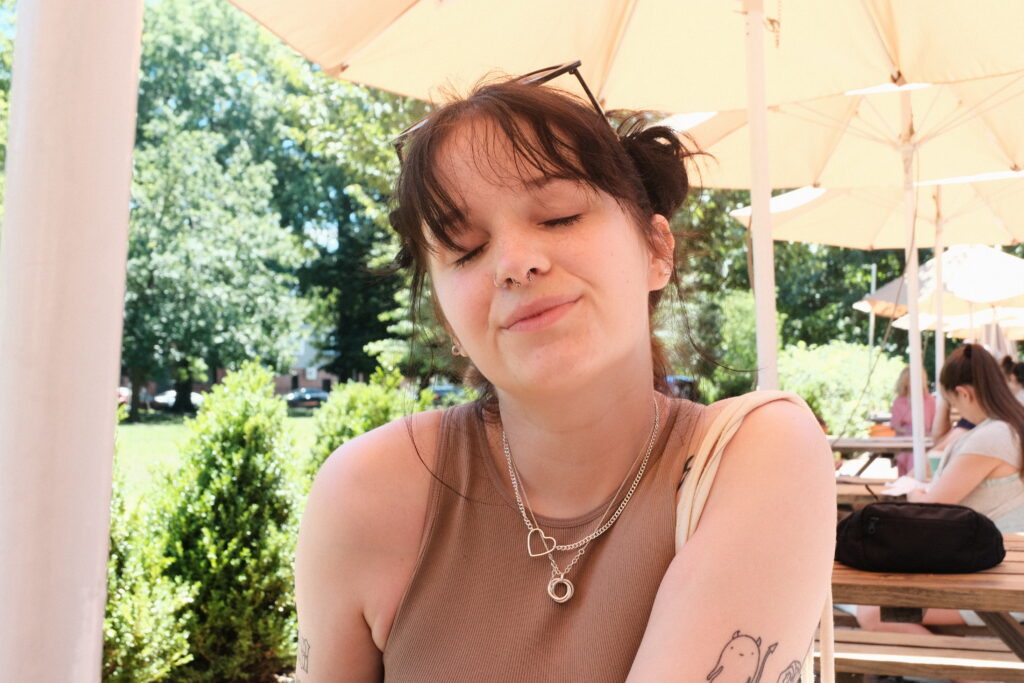
If you ask anyone close to me, or even me myself, I genuinely think I’ve never been better. Comparing 22 year old me to me now, they may as well be two different people. I’ll be honest, I still occasionally experience intense dips in my mood. I still take things personally, sometimes acting irrationally. You might see the occasional perhaps unnecessary outburst of tears from me. But, with all that said, it’s nowhere near as bad as it used to be.
I feel in control now. I know, and have, all the tools I need to keep BPD managed. I’ve come to accept that I’m never going to have a normal brain and, honestly, that’s okay with me now. What has helped the most is surrounding myself with people I know I can be open with about my BPD. To my family, close friends, and my boyfriend, thank you for always listening and understanding. It’s because of all of you that I was brave enough to keep going.
If you got to the end, thank you for reading our stories. We’ll be doing plenty more for Borderline Personality Disorder Awareness Month throughout May. But, for now, check out this article on April’s music releases.

